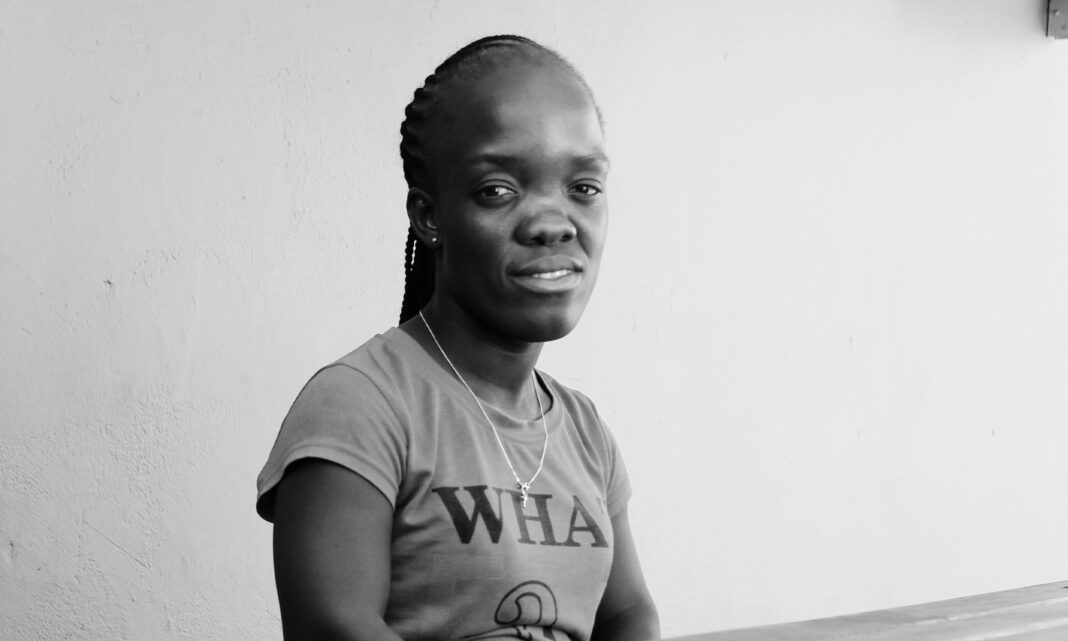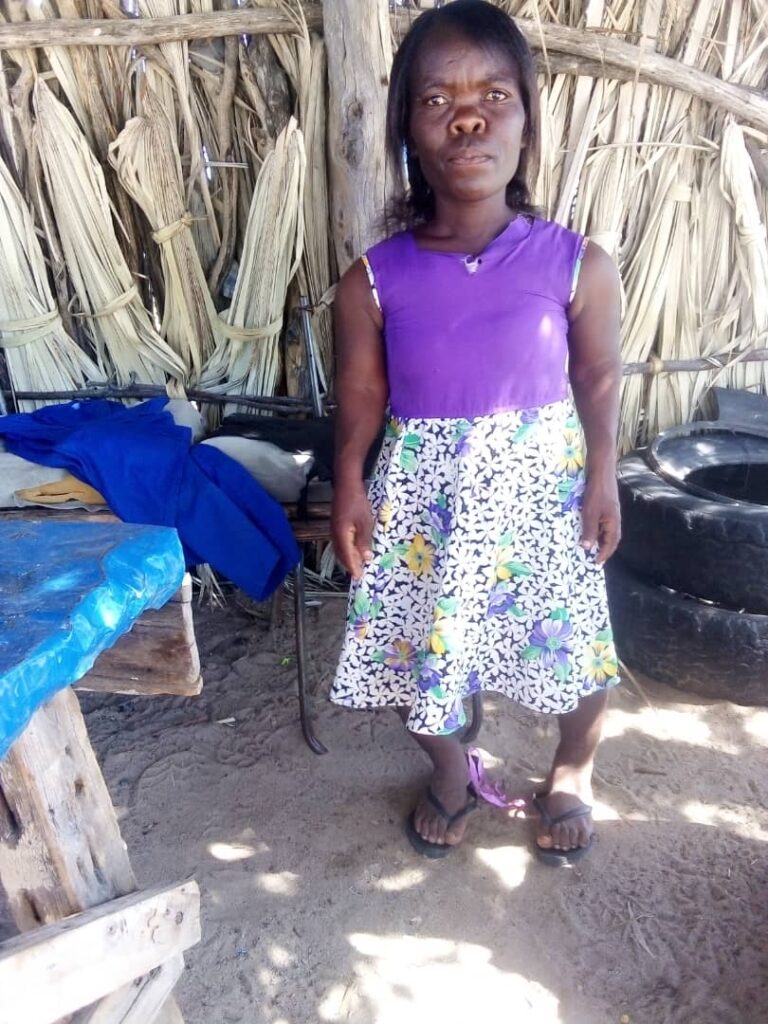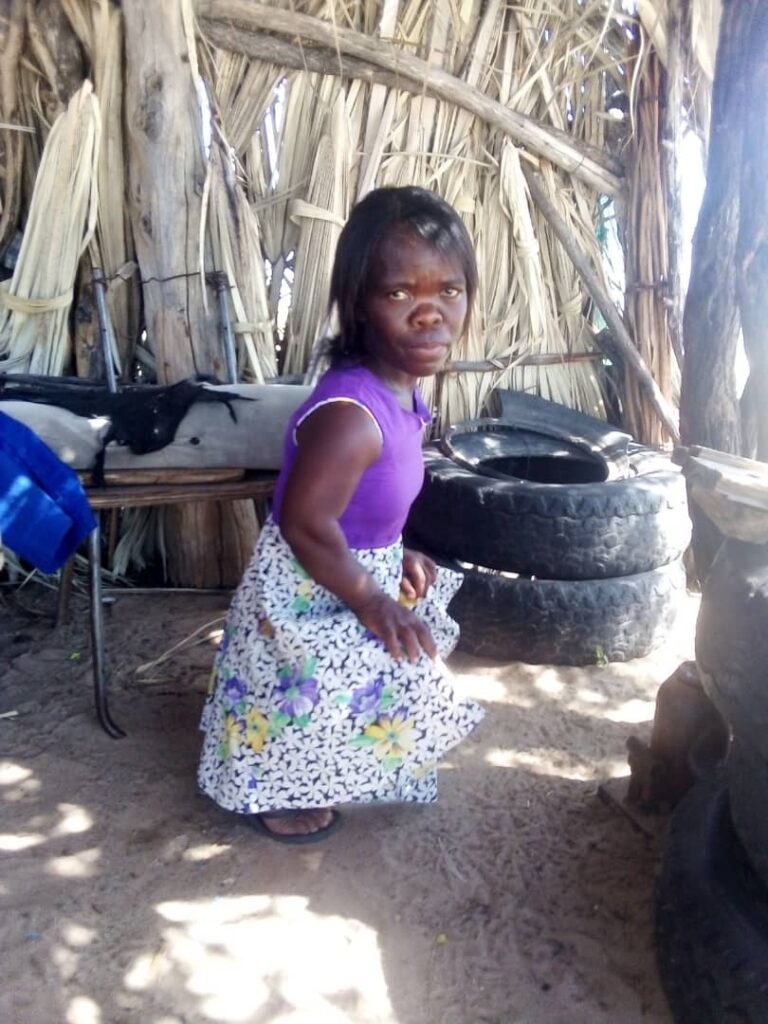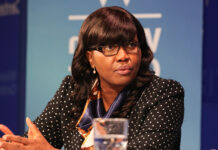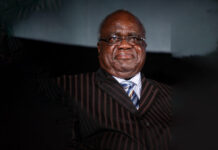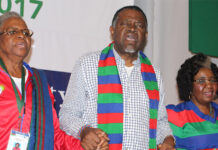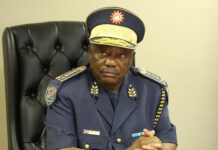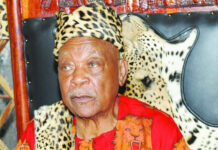By Sonja Smith | 20 May 2022
IT WASN’T until high school that Celvia Shivolo realised she was different.
Of course, she’d always been different. Her parents and four siblings were all of average height. She was the only one with dwarfism.
She’d just never felt so alone as after she moved with her father to Oshakati for school.
There, her fellow pupils at her new school started laughing at her.
“I don’t know whether it was the first time they saw a short person like me, but they started laughing at me,” Shivolo said. “When I told my aunty, she told me to forget about it.”
Then the name calling started. Some called her ‘jubbie’. The Aawambo called her eyungu, meaning a short person with a big head.
“They said that it was stupid of my mother to give birth to me this way,” she said.
As an adult, life hasn’t gotten easier.
“Even now at work, they make fun of me, and they stare at me. I don’t have friends. If I’m at home or at work, I keep myself occupied by listening to the radio,” Shivolo said.
Shivolo (30) works as a petrol attendant at a station in Windhoek’s Greenwell Matongo area.
She has a six-year-old daughter, who’s growing to average height.
As much love as she has for her child, finding romantic love for herself has been tough.
“When it comes to companionship, for me it is very difficult to find a person who can love me honestly. I have gone through disappointments,” Shivolo said.
“People come and they just want to take you for a ride, and others only want to sleep with you.”
GOD’S CREATION
Yet, she firmly believes that God created her this way, and that there are people born with even worse conditions.
“God created me this way. I cannot change it. People without children also laugh at me, not knowing that this can happen to them too,” Shivolo said.
Being a petrol attendant is not what she hoped for her life.
She always wanted to be an office administrator, but that dream was shattered when she failed Grade 10.
The current job market is also harsh on her. She receives a monthly grant of N$1 300 from the government, but one day, she hopes to start her own business.
“What keeps me going and strong is prayers.”
‘BIG HEAD’
Shivolo’s story is not isolated.
Rovisa Petrus is also among the 652 000 people living with dwarfism globally. Like Shivolo, school was a nightmare of relentless bullying for Petrus.
“In school people were different towards me. Some did not want to sit next to me. Others called me names like shorty or big head. At times they would take my clothes and throw them away because I was the only one looking like this,” Petrus said.
At 24, Petrus has two children. Her firstborn is average, but her second has dwarfism.
“I still face the same treatment from society today. People stare at me like I’ve committed a crime. My other child is taller, only this one is like me,” Petrus said pointing to her son.
“Until society changes, it will not be easy for him to adapt in school because people will just look at him the same way they did to me.”
MORE LONELINESS
Petrus was raised by her aunt, who worked as a pastor. Due to her job, they moved a lot.
“I have attended about four schools, and at every school I went to, I experienced the same attitude towards me. At first, I would report such behaviour but not all the time. My aunt told me to just focus on my studies,” Petrus said.
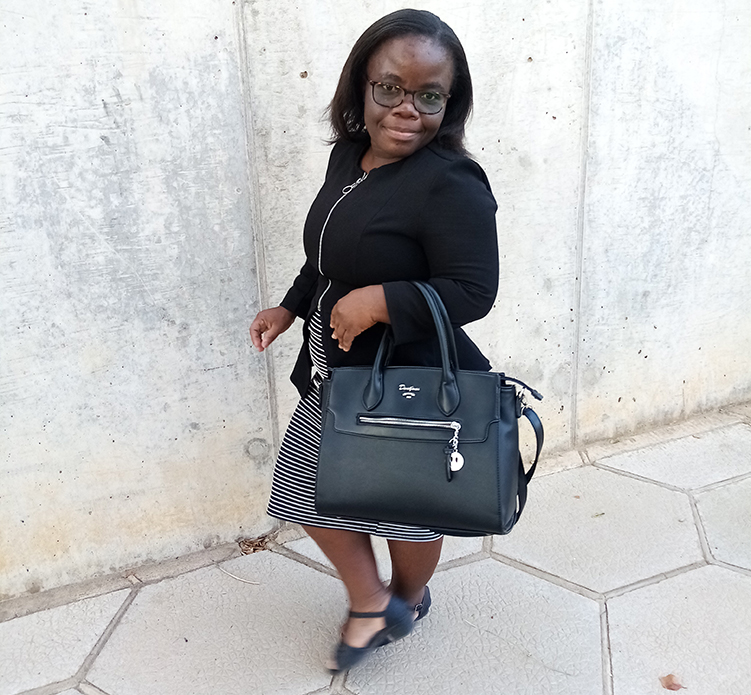
She told The Namibian that the pain of loneliness and being laughed at affected her studies.
“I didn’t provoke anyone. I was always alone at school and I never had people to talk to,” she said. This affected my studies because the courage was just not there to reach my full potential.”
However, Petrus did not give up. She came to Windhoek in 2015 to upgrade her school results, while working as a petrol attendant.
Now she is a first-year student at a private nursing school.
She has also obtained a diploma in office administration and another in caregiving.
‘AN ORGANISATION FOR US’
People living with dwarfism feel overlooked in Namibia, and are often relegated to jobs at service stations.
Petrus wants the government to set up an organisation for people living with dwarfism.
“We are not many in Namibia. An organisation for us (would) cater to our needs and allow our voices to be heard.”
Petrus said that having a disability ministry does not help them much.
“I want the government to give us jobs, because people are not treating us the same as other people. They must give us jobs that we are qualified for,” she said.
“Even at shops, employers don’t want to take us. For those of us with children, the grant we receive is not enough to cater for everything.”
Petrus also called on society to embrace people living with dwarfism.
“We are all the same,” she said. “It’s only the height that is different. People must stop bullying us when we walk or look at us like we are not human beings.”
In November 2016, sport minister Agnes Tjongarero called on the Namibia National Paralympic Committee (NNPC) to scout for people living with dwarfism, and get them involved in sports.
The NNPC answered the minister’s call, and both Petrus and Shivolo were recruited.
But it was not all roses, said Nathalia Kambo (32) who was also part of the team.
“We would go for training, but the coach had no interest in what we were doing. When we ran, they laughed at us,” Kambo said.
She said she had to leave the team because she could not afford taxi fare to get to training.
‘SCARY APPEARANCE’
In some ways, Kambo had a better experience in school, thanks to caring teachers.
“In school I was never mistreated. The teachers made sure,” she said. “Only during holidays when I would go home, other kids would gather to come look at me.”
Growing up at Uukuvu village in Omusati, she was the only one in her family with dwarfism, until her daughter was born in 2015.
While at Katutura State Hospital in 2015, a nurse almost fell down after seeing her.
“The nurse was coming my way in the ward and she told me that my appearance scared her,” Kambo said. “Sometimes, I find myself in Shoprite, and someone will find you there and they will drop their shopping and stand just to stare at me.”
Kambo said the government needs to find ways to help people living with dwarfism.
“When we travelled to South Africa with the NNPC, I met people without legs, without eyes and they told us that their government is taking good care of them. In Namibia, we are not even a lot, but we are suffering. Give us cleaning jobs at hospitals or clinics,” she said.
‘BEAR’
Saima Vatileni (39) realised she was different at the age of eight.
Vatileni works as an assistant administrator at the Namibia Training Authority (NTA).
She said living with dwarfism has not been easy for her either, and she was called a polar bear.
“At a young age, other kids used to beat me and call me names like polar bear. When I was in Grade 4, one boy beat me because we were the same age in class. People used to laugh at me, and this would make me cry all the time,” Vatileni said.
She said these events almost led to her dropping out of school.
Namibia currently has no statistics on people living with dwarfism.
According to the World Health Organisation, most types of dwarfism are caused by a genetic change in an egg or sperm cell, usually before conception. Children can also inherit the gene from a parent.
SUPPORT
Deputy minister of disability affairs Alexia Manombe-Ncube said she understands the struggles of people living with dwarfism.
“Many people with disabilities in general have similar challenges, particularly regarding finding employment,” Manombe-Ncube said.
She said a lack of information is one of the reasons they are mistreated by society.
“We urge the media to play a role of awareness raising. We encourage you to be more inclusive of persons of short stature, so that this community can be viewed as more socially acceptable and have an easier time fitting in society,” she said.
She dismissed claims that the government has over the years failed to help people living with dwarfism, and noted a series of laws that have adopted international standards to protect people with disabilities.
“These laws focus on the human rights of people with disabilities,” including workplace accommodations, she said.
But she noted that dwarfism is not always regarded as a disability.
“Their disabilities were never regarded as physical impairment,” she said. “We are in the process of reviewing the guidelines that are used to determine which person qualifies for the disability grant.”
She added: “Some offices such as the Office of the President, Nipam and NTA have employed people of short stature. Four students of short stature are registered at institutions of higher learning and are benefitting from the Student Assistant Fund offered by Disability Affairs.”
In 2018, Manombe-Ncube engaged people living with dwarfism to form an association that advocates their needs and challenges.
“Office space was made available to them at the Disability Resource Centre at Okuryangava,” she said.
The Ministry of Finance announced that N$72,2 million was made available by the Development Bank of Namibia for youth-owned businesses, mentorship and coaching programmes for the youth.
Manombe-Ncube advised people living with dwarfism to approach her office to facilitate due processes.

